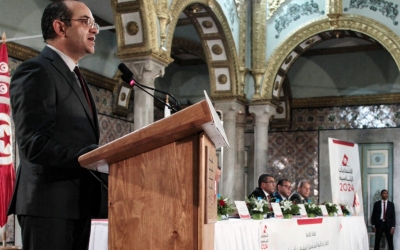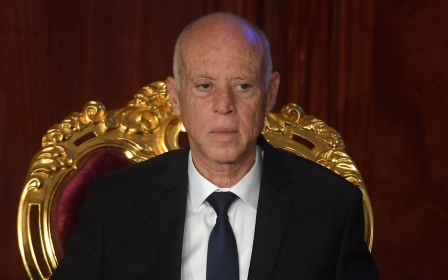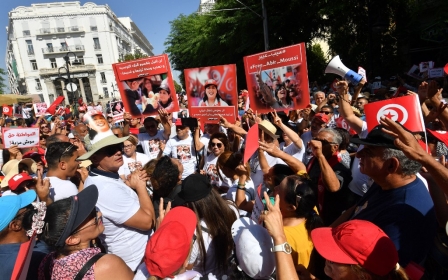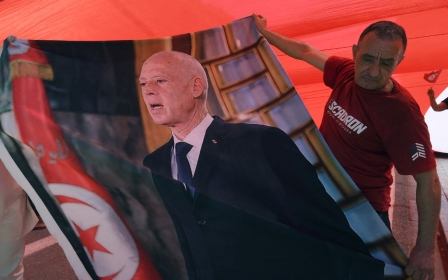Tunisian presidential candidate arrested again shortly after release
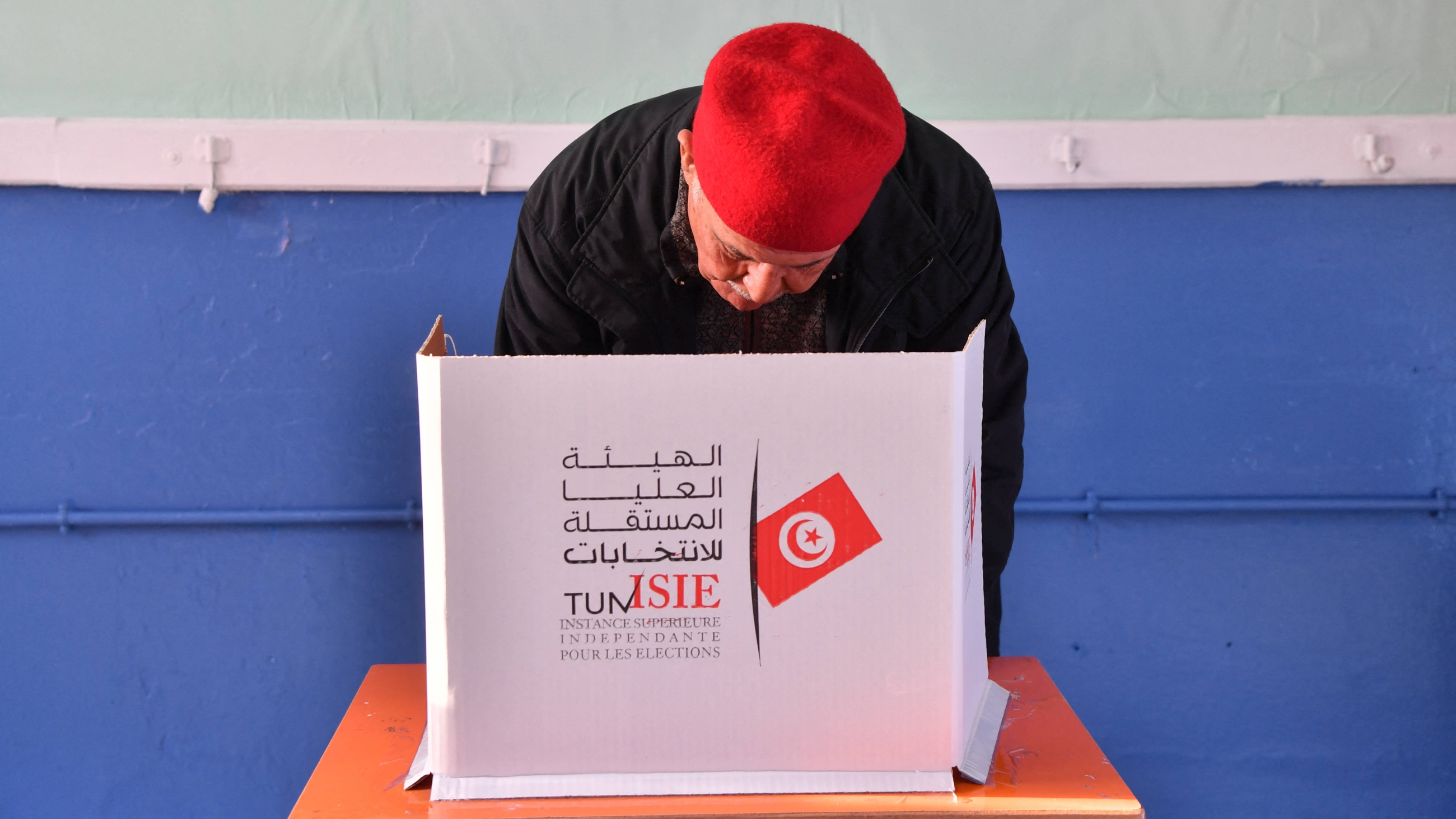
Tunisia on Friday re-arrested presidential candidate Ayachi Zammel hours after his release from pretrial detention on suspicion of manipulating ballot signatures.
Zammel, 43, is one of only two candidates approved by the Independent High Authority for Elections (Isie) to challenge President Kais Saied in the 6 October election.
Zammel was first arrested on Monday before a court ordered his temporary release on Thursday night. Shortly after, however, the former MP was detained again on the same charge of forging signatures required for his candidacy.
In August, Zammel stepped down as head of a small liberal party, Azimoun, to run as an independent candidate.
His detention comes amid accusations that Tunisian authorities are using arbitrary detention and administrative hurdles to ensure the re-election of Saied, who has been in power since 2019.
New MEE newsletter: Jerusalem Dispatch
Sign up to get the latest insights and analysis on Israel-Palestine, alongside Turkey Unpacked and other MEE newsletters
Human Rights Watch (HRW) reports that at least eight prospective candidates have been "prosecuted, convicted or imprisoned" in the run-up to the election.
Since taking office, Saied has increased his grip on the country by dissolving parliament in 2021, seizing wide-ranging powers and ruling by decree - a move regarded as a coup.
'A mockery of Tunisian rights'
Just hours after Zammel’s first arrest, the Isie released the final list of presidential candidates, which included Zammel, Saied and Zouhair Maghzaoui, a former MP who supported Saied’s power grab.
The list excluded three other contenders, ignoring a ruling by Tunisia's top court that had granted their appeals against their initial disqualification by Isie.
The disqualified candidates - seen by experts as serious competitors to Saied - were Imed Daimi, an adviser to former President Moncef Marzouki, Mondher Zenaidi, a minister under former autocrat Zine el Abidine Ben Ali, and prominent opposition leader Abdellatif Mekki, a former leader of the Ennahda party.
Justifying their exclusion, Isie chief Farouk Bouasker said that "the administrative court had not officially communicated its decisions [to the electoral body] within the 48-hour period as required by the law".
Isie’s decision sparked outrage, as legal experts had recently argued that the administrative court’s rulings were final and irrevocable. This controversy has also rekindled criticism of Isie, which is accused of being influenced by the current government.
Since Saied’s coup in August 2021, the members of the electoral authority have been directly or indirectly appointed by the president.
The European Union said Zammel's arrest and the exclusion of the three hopefuls showed "a continued limitation of the democratic space" in Tunisia.
"The rule of law and respect for the separation of powers are at the heart of democratic values, as are electoral rights and the right to a fair trial," the EU said.
HRW said on Wednesday that Isie "has intervened to skew the ballot in favour of Saied".
"Holding elections amid such repression makes a mockery of Tunisians' right to participate in free and fair elections," HRW added.
Middle East Eye delivers independent and unrivalled coverage and analysis of the Middle East, North Africa and beyond. To learn more about republishing this content and the associated fees, please fill out this form. More about MEE can be found here.


